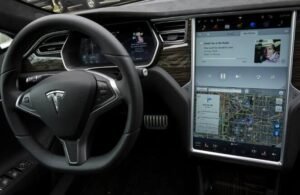The Minister of Road Transport and Highways Nitin Gadkari said that he opposes the introduction of driverless cars in India, which might cause the drivers to lose their jobs.
As India is the most populated country in the world, it will be difficult if a large number of people will get unemployed. “If the driverless cars are introduced in India, then approximately 70 to 80 lakh people will lose their jobs,” he said.

In addition, while addressing the Zero Mile Samved hosted by IIM Nagpur on Monday, Gadkari sketched out various measures taken by the government to eradicate road accidents and added automated engineering like reducing black spots on roads, adding airbags in the car, increasing fines according to the Motor Act.
Gadkari asserted that Tesla’s entry into the Indian market is allowable, but if they manufacture the product in China for sale in India, then this will be not acceptable. Hence, a manufacturing unit will be required to sell in India.
How many times has Gadkari refused to introduce driverless cars in India, and Why?
The MoRTH Minister Nitin Gadkari has expressed his disapproval regarding driverless cars not once, but many times publicly in 2017, 2018 and 2019.

In 2017, he stated that driverless cars are not necessary in India for now. However, electric vehicles are much more important, because they create less pollution in the environment and consume less energy to run.
In 2018, he said that driverless cars wouldn’t be allowed in India as many people are getting employed in the automobile industry. And, as per the country’s economy, it will be better to focus more on employing the people.
In 2019, he opposed the introduction of driverless cars in India, raising concerns about unemployment. He emphasized the need for employment and highlighted the shortage of drivers in the country.
In December 2023, he again said the same thing following the previous years. “I will never allow driverless cars to come into India because it will take away the jobs of several drivers and I will not let that happen,” he had added.
Apart from job risks, is there any other reason?

As per Gadkari, job loss is the primary concern, because it may lead to making lakhs of drivers jobless in India. Nevertheless, other factors that stuck behind the refusal is complex traffic condition, 3D roadmap creation and road infrastructure.
There are some crucial challenges to the safe and smooth operation of driverless cars in India . But other than this, this new technology might not be fully adapted to everyone.
Possible Outcomes on this decision:
Gadkari’s decision on not allowing driverless cars might slow down the adoption and development of driverless cars in India. So, finding an alternative solution will better direct transportation challenges, and improve public transportation or driver assistance systems.
Further, focusing on developing indigenous driverless car technology, inclusive transportation system for physically-challenged and elderly people could be able to adapt to the challenges of India’s transportation network.












Comments 1